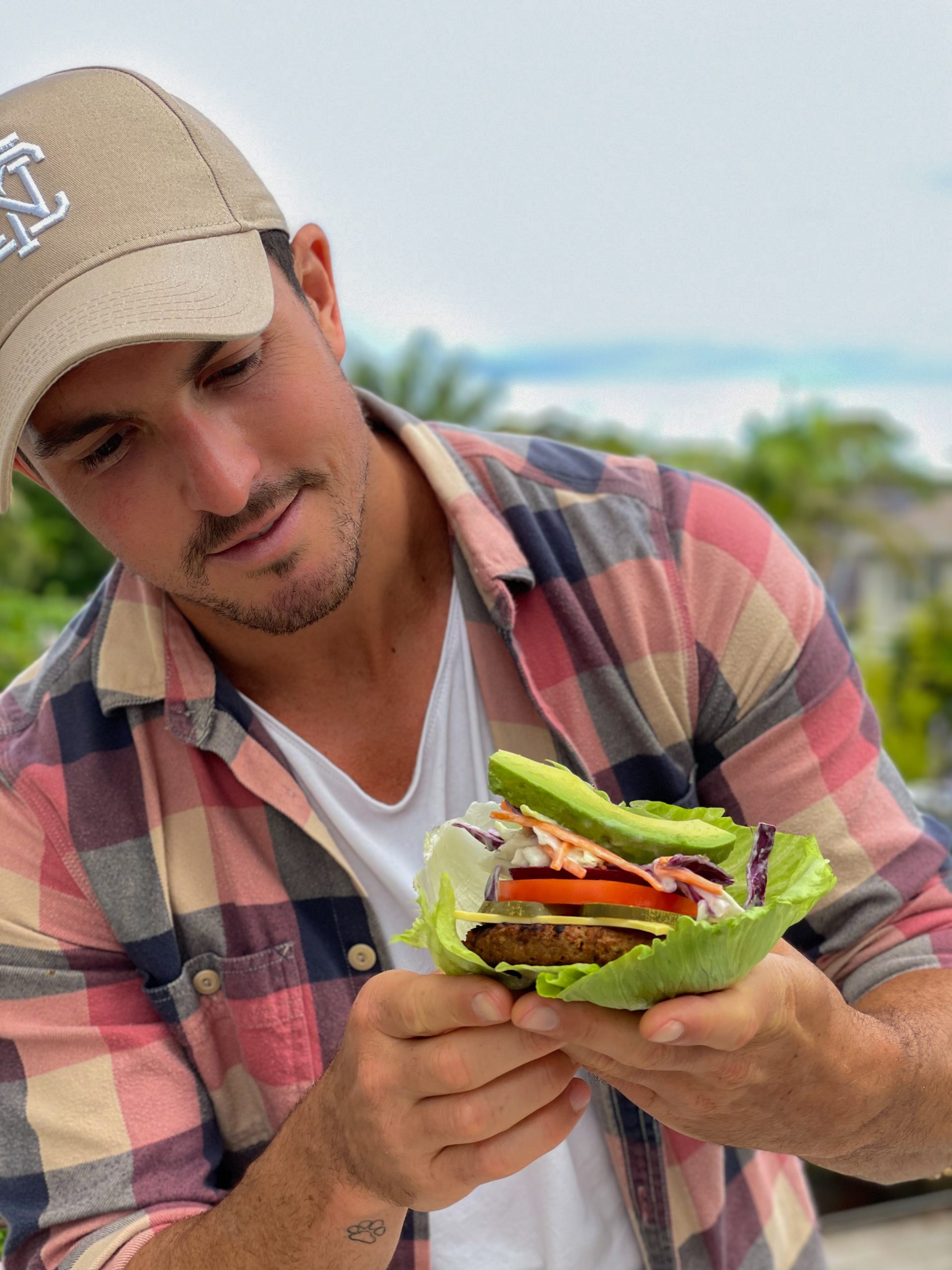
The rise of plant-based meat alternatives has come at a time when the planet and its inhabitants need it most.
As climate science progresses and consumers wake up to the reality that our current food system is unsustainable, unethical and hugely damaging to the planet – especially if we are to continue to feed the global population at current meat intake levels – the role of plant-based meat alternatives is bigger than ever before.
Here are 5 reasons why you might want to start incorporating plant-based meat alternatives into your diet:
If you’re an omnivore who wants to make more conscious consumer choices
You don’t have to be vegan to enjoy a Love BUDS™ plant-based burger patty for the same reasons you don’t have to be lactose intolerant to choose oat milk. You don’t need a label to make a consumer choice that goes against the grain of tradition.
Why would an omnivore want to eat plant-based meat anyway? Are plant-based meat patties healthy? Whenever you ask if something is healthy, you always have to follow it with “compared to what?”. The WHO has classified processed meat as a Group 1 carcinogen (known to cause cancer), therefore choosing a plant-based alternative is likely a healthier option as it contains fibre which regular beef doesn’t, and it typically has less saturated fat. But compared to lentils and tempeh, plant-based meat alternatives are not as healthy hence why I promote their intake in moderation.
Nutritional science aside, the impact on the planet of eating conventional red meat is significantly greater than that of a plant-based alternative. Animal agriculture is an inefficient, antiquated system that strips the planet of precious resources (water and land) while emitting GHGs (carbon/methane) at an alarming rate. Animal agriculture has a very poor caloric yield. The energy that goes into growing animals for food is enormous for a very small return in the form of energy out i.e edible calories for human consumption. For example, according to Our World in Data, beef has a caloric yield of about 2%. In other words, for every 100 calories that you feed to a cow, you get 2 calories out. When it comes to planetary health and sustainability, animal agriculture is a very large environmental bang for a very small caloric buck.
So if you’re an omnivore who has a passion for environmental sustainability and wants to reduce your carbon footprint, choose plant-based options where possible.
If you want to slowly transition towards a plant-based diet
Many people are adopting whole food plant-based (WFPB) diets for health, performance, ethical and environmental reasons but not all people have the nutritional literacy to adopt this way of eating overnight. It takes a considerable amount of education to formulate a well-planned WFPB diet that has no nutritional holes in it. Furthermore, some people have a psychological barrier where they find it difficult to give up the flavours and textures that they are traditionally accustomed to eating. The thought of saying goodbye to your favourite animal-based foods can be daunting. ‘What will I replace them with?’ and ‘Where will I get my protein?’ are common queries. You don’t have to sacrifice the textures and flavours that you grew up loving just because you have adopted a new way of eating. BUDS have created a plant-based meat alternative that is so delicious you wouldn’t even know it’s not meat. If you want to transition towards a predominantly plant-based diet in a gentle stepwise manner without having to dive straight into the deep end, meat alternatives are a great stepping stone.
If you eat a WFPB diet but want to enjoy a treat meal from time to time
Even if you’re somebody who follows a WFPB diet for health reasons and avoids processed food as much as possible, you can still enjoy a treat from time to time to keep you on the bandwagon! Let’s say you’re 90% plant-based, the remaining 10% of flexibility may be the wiggle room you need to keep you on track and will likely have zero clinical significance when it comes to overall health outcomes. I’m not pretending that meat alternatives are a ‘health food’ but they certainly have their place within a predominantly whole food plant-based diet. BUDS patties allow you to get the flavours and textures of meat without the need for GMOs, hormones, antibiotics or cholesterol. So compared to factory-farmed meat, I’d rather eat a plant-based patty any day. Plus, if you choose to fill that 10% with minimally processed plant-based alternatives, compared to ultra-processed food, you’re still doing yourself a service.
If you want to fit in at social gatherings
An Aussie BBQ can be an uncomfortable place for a vegan but that doesn’t mean you have to turn down every invite that you get. If you BYO BUDS you can fit right in without anyone even knowing that you’re eating something entirely different. Here’s what I do: If I’m at a friends house, I simply ask the chef to cook my patty or I offer to do it myself on another cooktop. Chances are nobody will even notice that you’re eating something different but in the case that they do, it may be a great opportunity to promote a consumer option without being too preachy about it. Read the room. You’d be surprised how curious people are.
If you’re vegan for ethical reasons but don’t want to give up your favourite flavours
There’s a long-standing myth that all vegans are ‘grossed out’ or repulsed by the taste of meat, but that’s not entirely true. Many vegans give up meat because they don’t want to vote with their dollars to support an industry that doesn’t align with their morals and values. Vegans value the life of an animal more than 5-minutes of tastebud pleasure and cannot justify the death of a sentient being for a mouthful of flavour. For those reasons, many vegans choose not to eat meat despite enjoying the flavours. Well, the good news is, you can have your patty and eat it too. BUDS patties are a delicious alternative that tastes and feels just like the real thing without the animal that loses its life. So, if you’re an ethical vegan who doesn’t want to sacrifice morals for taste, you can have both! The two are not mutually exclusive.
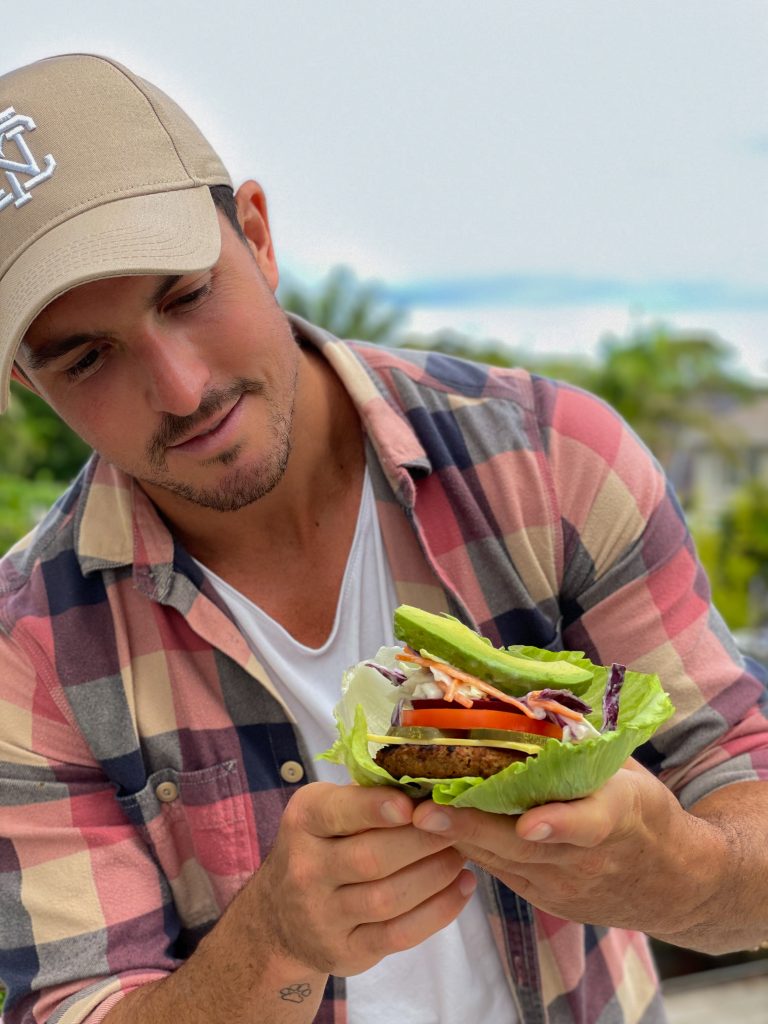
THE TAKE-HOME MESSAGE
Whether you’re vegan for ethical reasons, WFPB for health reasons or an omnivore who wants to lighten your footprint and make more conscious choices that align with your core values, plant-based meat alternatives are the low hanging fruit. The degree and frequency to which you choose to include them in your diet will come down to personal preference. Maybe it’s 10% of the time or a few meals a week. Regardless of where you land, they’re a more climate-friendly option than conventional practices and a do-less-harm approach. When considering the animals, the environment and your health, plant-based alternatives are a very viable option and a step in the right direction. In my opinion, any move away from traditional animal agricultural farming practices towards a more gentle, sustainable future is something to be celebrated!




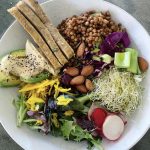
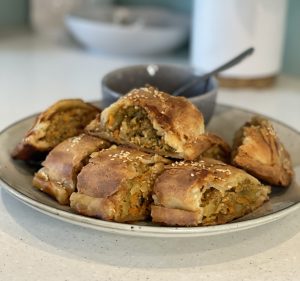
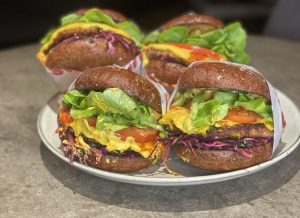
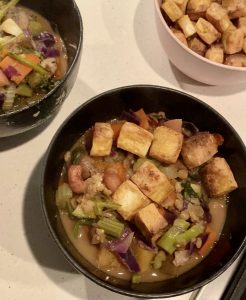
No comment yet, add your voice below!